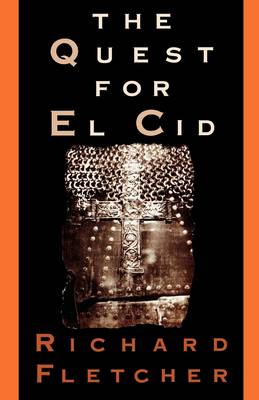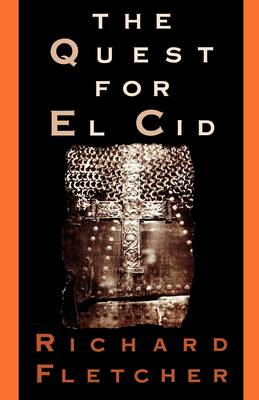
- Retrait gratuit dans votre magasin Club
- 7.000.000 titres dans notre catalogue
- Payer en toute sécurité
- Toujours un magasin près de chez vous
- Retrait gratuit dans votre magasin Club
- 7.000.0000 titres dans notre catalogue
- Payer en toute sécurité
- Toujours un magasin près de chez vous
Description
Rodrigo Diaz, the legendary warrior-knight of eleventh-century Castile known as El Cid, is remembered today as the Christian hero of the Spanish crusade who waged wars of re-conquest for the triumph of the Cross over the Crescent. He is still honored in Spain as a national hero for liberating the fatherland from the occupying Moors. Yet, as Richard Fletcher shows in this award-winning book, there are many contradictions between eleventh-century reality and the mythology that developed with the passing years.
By placing El Cid in a fresh, historical context, Fletcher shows us an adventurous soldier of fortune who was of a type, one of a number of "cids," or "bosses," who flourished in eleventh-century Spain. But the El Cid of legend--the national hero--was unique in stature even in his lifetime. Before his death El Cid was already celebrated in a poem written in tribute of the conquest of Almería; posthumously he was immortalized in the great epic Poema de Mio Cid and became the centerpiece for countless other works of literature. When he died in Valencia in 1099, he was ruler of an independent principality he had carved for himself in Eastern Spain. Rather than the zealous Christian leader many believe him to have been, Rodrigo emerges in Fletcher's study as a mercenary equally at home in the feudal kingdoms of northern Spain and the exotic Moorish lands of the south, selling his martial skills to Christian and Muslim alike. Indeed, his very title derives from the Arabic word sayyid meaning "lord" or "master." And as there was little if any sense of Spanish nationhood in the eleventh century, he can hardly be credited for uniting a medieval Spanish nation.
In this ground-breaking inquiry into the life and times of El Cid, Fletcher disentangles fact from myth to create a striking portrait of an extraordinary man, clearly showing how and why legend transformed him into something he was not during his life. A fascinating journey through a turbulent epoch, The Quest for El Cid is filled with the excitement of discovery, and will delight readers interested not only in Spanish history and literature, but those who want to understand how myth can shape our perception of history.
By placing El Cid in a fresh, historical context, Fletcher shows us an adventurous soldier of fortune who was of a type, one of a number of "cids," or "bosses," who flourished in eleventh-century Spain. But the El Cid of legend--the national hero--was unique in stature even in his lifetime. Before his death El Cid was already celebrated in a poem written in tribute of the conquest of Almería; posthumously he was immortalized in the great epic Poema de Mio Cid and became the centerpiece for countless other works of literature. When he died in Valencia in 1099, he was ruler of an independent principality he had carved for himself in Eastern Spain. Rather than the zealous Christian leader many believe him to have been, Rodrigo emerges in Fletcher's study as a mercenary equally at home in the feudal kingdoms of northern Spain and the exotic Moorish lands of the south, selling his martial skills to Christian and Muslim alike. Indeed, his very title derives from the Arabic word sayyid meaning "lord" or "master." And as there was little if any sense of Spanish nationhood in the eleventh century, he can hardly be credited for uniting a medieval Spanish nation.
In this ground-breaking inquiry into the life and times of El Cid, Fletcher disentangles fact from myth to create a striking portrait of an extraordinary man, clearly showing how and why legend transformed him into something he was not during his life. A fascinating journey through a turbulent epoch, The Quest for El Cid is filled with the excitement of discovery, and will delight readers interested not only in Spanish history and literature, but those who want to understand how myth can shape our perception of history.
Spécifications
Parties prenantes
- Auteur(s) :
- Editeur:
Contenu
- Nombre de pages :
- 240
- Langue:
- Anglais
Caractéristiques
- EAN:
- 9780195069556
- Date de parution :
- 20-06-91
- Format:
- Livre broché
- Format numérique:
- Trade paperback (VS)
- Dimensions :
- 142 mm x 217 mm
- Poids :
- 335 g

Les avis
Nous publions uniquement les avis qui respectent les conditions requises. Consultez nos conditions pour les avis.






